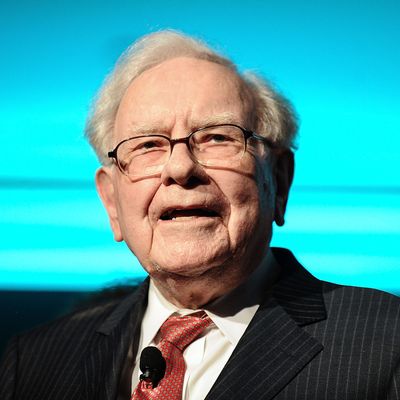
In 2007, Warren Buffett wrote in a letter to Berkshire Hathaway investors that “if a far-sighted capitalist had been present at Kitty Hawk, he would have done his successors a huge favor by shooting Orville down.” But Buffett eventually changed his mind about the airlines, and now he has changed his mind again. Over the weekend, Buffett announced that his company, Berkshire Hathaway, has sold the entire multibillion-dollar position it had taken in the four largest U.S. airlines — American, Delta, Southwest, and United — starting in 2016.
Historically, airlines have gone bankrupt a lot. Airlines have huge upfront costs to buy airplanes and build networks, then they compete fiercely on price, which pushes profit margins down to a level that can’t support those capital investments, especially through economic downturns when demand for air travel dips. But investors kept putting money into airlines through the decades anyway, perhaps partly due to the romance of air travel, driven by the belief that next time would be different. Buffett’s 2007 warning was about not getting caught up in this belief.
But over this past decade, it had seemed the U.S. airline industry had reached a point where this time really was different. Buffett had complained in 2007 that airline investors were “attracted by growth when they should have been repelled by it.” But an increasingly consolidated U.S. airline industry got over its growth addiction, touting “discipline” in not increasing capacity, flying planes that were increasingly full, and finally succeeding in charging passengers more to travel. Arguably this reflected a failure of public policy — free-for-all competition in air travel was bad for investors but good for customers who enjoyed low fares. But regardless of the policy merits, it looked like the U.S. airline industry had reshaped its business model in a way that could produce sustainable profits for airline investors without ruinous excess capacity. This was the context in which Buffett made his airline investments. And by buying stakes in all four of the largest carriers, he made clear he was making a bet on this industry-wide phenomenon rather than the skill of specific management teams.
But Buffett is now concerned that the airline industry will be reshaped again by this crisis such that U.S. airline capacity, which looked “disciplined” a few months ago, is excessive for the quantity of travel that will be demanded not just during this crisis but in its aftermath.
“The world has changed for the airlines,” Buffett said this weekend, then adding an observation about declining demand for business travel: “I don’t know whether the trends toward what people have been doing by phone — I mean, it’s been seven weeks since I’ve had a haircut, it’s been more than seven weeks since I put on a tie or anything. It’s just a question of what sweatsuit I wear.” This statement wasn’t precisely true — Buffett was wearing a tie as he said it — but the possibility of a persistent or even permanent shift away from in-person business travel is a significant risk to airlines’ long-run revenue outlook.
The federal government has shown a commitment to supporting airlines financially through this period of coronavirus mitigation, granting the airlines tens of billions of dollars in exchange for keeping workers on payroll and maintaining service even to cities where there is little demand. These funds have helped keep airlines out of bankruptcy, for now. But if travel demand stays suppressed even after the acute crisis is over, it is hard to imagine the federal government will compensate airline shareholders for an ongoing drop in travel demand. At some point, a persistent decline in demand for air travel would have to accrue as losses to equity owners of airlines, and that expectation is part of why airline share prices have cratered.
The broader stock market has rebounded strongly from the lows it reached in March, as investors have become increasingly confident that the U.S. will avoid coronavirus worst-case scenarios and that the economy will rebound relatively swiftly after the acute crisis fades. But that rebound has not extended to airline stocks, which remain close to the lows they set around March 20. Buffett’s move reflects a view that even at these depressed prices, airline stocks are still higher than they reasonably should be, and that there is more pain to come.





























